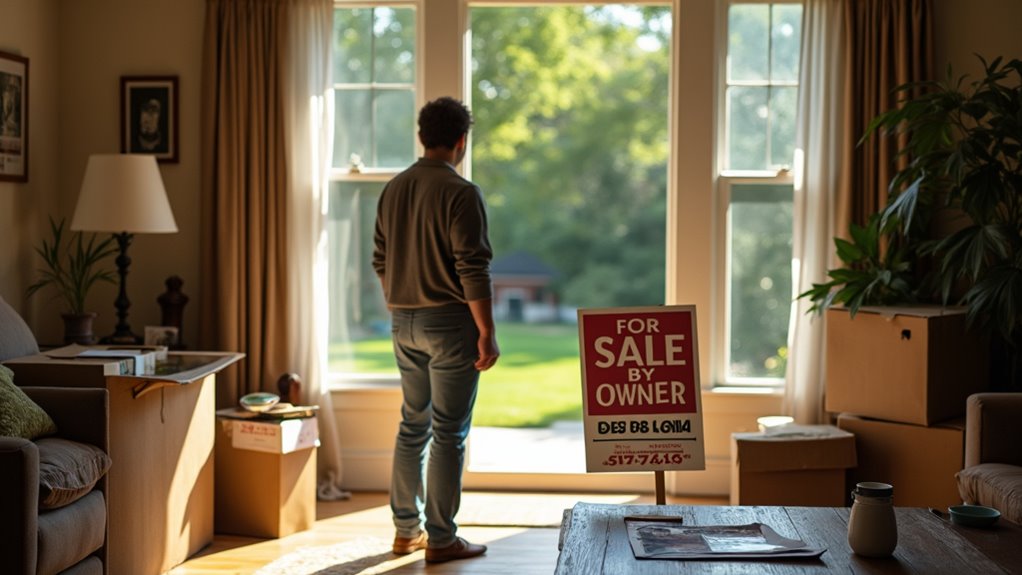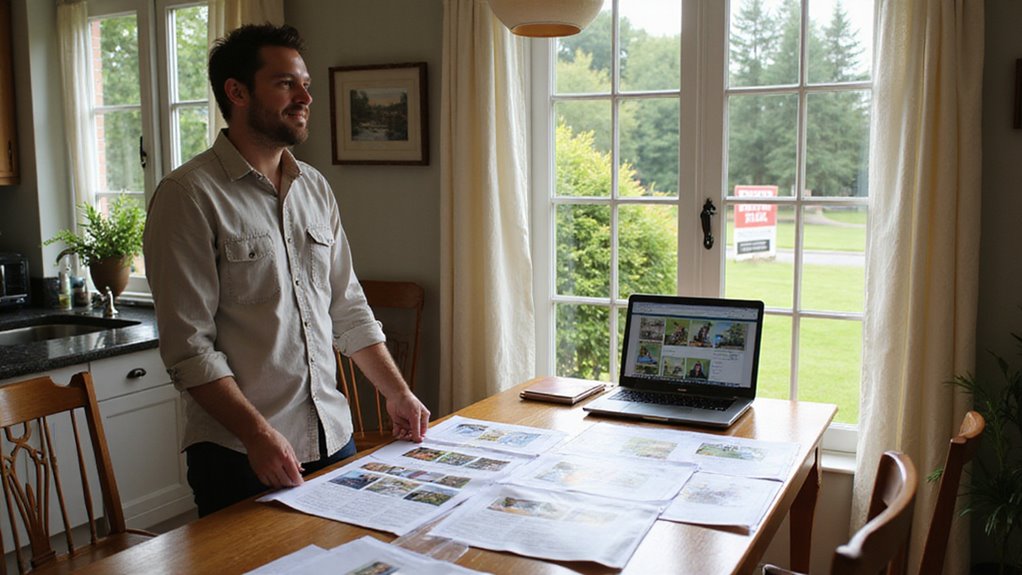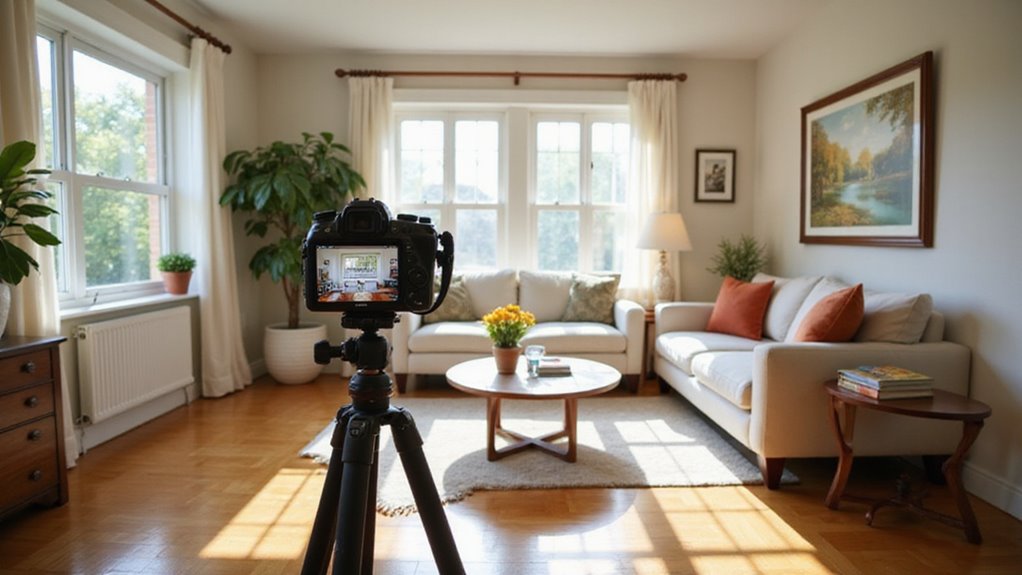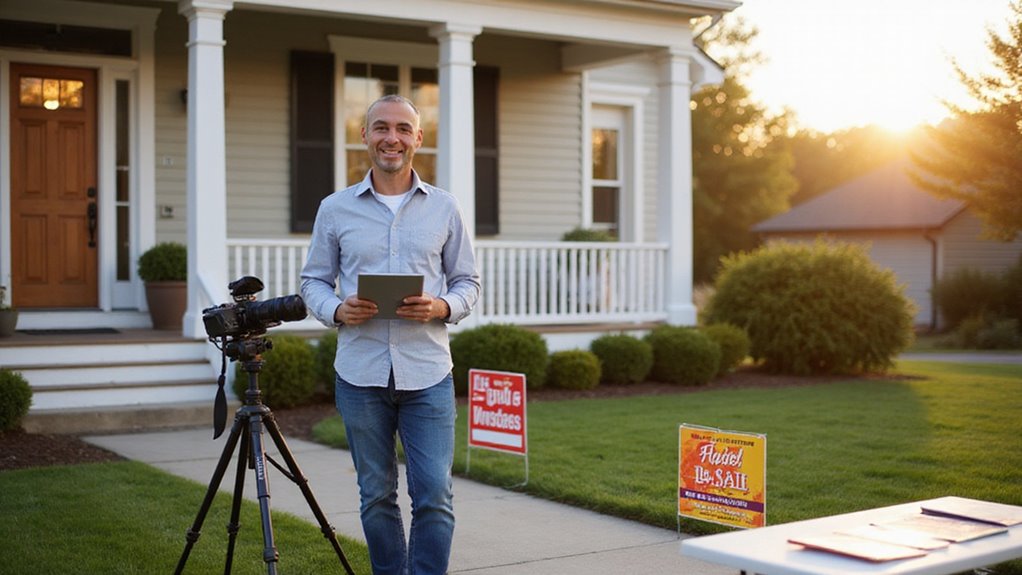When your home listing expires, it can feel like a setback. Many sellers worry their house just won’t attract buyers. This is a common problem, but it rarely means something is wrong with your property.
The real issue often lies in how the home was priced or marketed. Without the right approach, even great homes can sit unsold. This can be frustrating and leave you feeling uncertain about your next steps. You can sell your house FSBO after an expired listing by fixing past mistakes and using a strategic plan.
This means analyzing your market, setting a fair price, and qualifying buyers early. Taking control can help you save money and succeed where you struggled before. This blog will guide you step-by-step so you can sell your house FSBO after an expired listing.
Key Takeaways
- Reevaluate your pricing using recent local sales data to set a competitive, market-driven list price.
- Address any property issues by conducting inspections and making necessary repairs or upgrades to enhance appeal.
- Create professional-quality photos, virtual tours, and detailed descriptions to maximize online listing effectiveness.
- Market aggressively on major FSBO websites, social media, and through local signage to reach more buyers directly.
- Qualify buyers by requiring pre-approval letters and manage negotiations and paperwork carefully to ensure a smooth, legally compliant sale.
Understanding Why Your Listing Expired

A listing can expire without a sale even if you worked hard. The main reason is usually the price was too high. If this happens, you need to look at what went wrong.
Most expired listings did not match buyer expectations on price. You may have missed important market data or trends. If you did not compare your home to similar recent sales, the price may have been off. Overpricing can lead to a home sitting on the market, and often, sellers accept lower offers than if the home were priced competitively from the start.
Market conditions and the time of year can also affect sales. If buyer demand is low or there are many homes for sale, your listing may struggle. Reviewing your strategy and using current market data can help you succeed next time.
One way to improve your chances is by understanding how market analysis can help set a more accurate price and attract serious buyers.
Deciding If FSBO Is Right for You
Before you commit to selling your home FSBO, assess your negotiation and marketing skills honestly—recent data shows FSBO homes often sell for less than agent-listed properties. You’ll also need to factor in the significant time investment required for showings, paperwork, and buyer communications.
Consider leveraging a flat-fee MLS listing service to increase your home’s exposure and save on commission costs. Weigh these considerations carefully to determine if going FSBO aligns with your capabilities and schedule. Keep in mind that pricing your home correctly is crucial, as overpricing can result in your property lingering on the market or not selling at all.
Evaluating Your Selling Skills
To sell a home on your own, you need several important skills. You must do more than just list your property online. Selling as FSBO requires careful planning and effort.
Home staging is key, since staged homes sell much faster. You should know how to improve your home’s look to attract buyers. If you can make cosmetic changes, your home will stand out.
Open house planning also matters. You should plan and advertise your open house to bring in more buyers. Good scheduling and marketing can increase interest.
You must be ready to answer questions and handle negotiations. Legal paperwork is part of the process, so attention to detail is important. If you can communicate well and solve problems, FSBO may work for you.
If you lack confidence in any area, consider getting support. You might need help with marketing, negotiations, or paperwork. Evaluating your strengths will help you decide if FSBO is a good fit.
Assessing Time Commitment Required
Selling your home FSBO takes a lot of time and effort. You should think about your schedule before deciding to sell without an agent. If you cannot make time for many tasks, FSBO may not be right for you.
FSBO sellers spend extra hours on paperwork and marketing. You will need to answer calls, emails, and questions from buyers and agents. Some buyers may want to see your home on short notice.
You must also plan for marketing, taking photos, and updating your listing. Sellers handle negotiations, offers, and buyer concerns themselves. All paperwork, disclosures, and deadlines must be managed without help.
If your daily responsibilities keep you busy, selling FSBO could be stressful. Careful planning is necessary before making a decision. Consider your time and energy before moving forward.
Evaluating Your Home’s Current Condition

Your home’s current condition directly affects how well it will sell. A clean, well-maintained property attracts more buyers and better offers. If your house has issues, it can delay the sale or reduce the price.
Homeowners should start with a detailed inspection. This can be done by yourself or by hiring a professional. The goal is to find and fix problems before listing. Making sure you have a clear title can prevent unexpected issues during the sales process.
If repairs are needed, consider making them before showing the house. The National Association of Realtors says 28% of sellers do this. Addressing repairs early can help you avoid price cuts later.
Curb appeal makes a strong first impression. Simple changes like fresh paint or new plants can add value. These updates make your home more appealing from the street.
Fix visible flaws and tackle any neglected maintenance. Buyers notice small issues and may use them to negotiate. If you address these problems, you can improve your selling position.
Focus on updates that give the most value for your money. These improvements can help your home stand out in the market. If you prepare well, you can maximize your FSBO advantages.
Before you list, it’s also important to conduct a thorough property lien search to ensure there are no hidden legal or financial obstacles that could delay or complicate your sale.
Researching Your Local Real Estate Market
You need to know your local market to price your home well. If you study recent sales and listings, you can see what buyers want. Understanding local trends will help you attract more buyers.
Begin by comparing your home to similar homes nearby. Check listing prices and final sale prices to spot price differences. You should also look at how long homes stay on the market. Consider that distressed properties in poor condition can be difficult to sell through traditional means, which might influence your pricing strategy.
Start by looking at similar homes in your area, reviewing both their listing and sale prices, and how long they took to sell.
If you track inventory levels, you can see if there are many homes for sale. Lower inventory may help your home sell faster. Seasonal trends can also change how many buyers are looking.
If you use real data, you will make better decisions. Good research can help you sell your home faster and for a better price. If you take time to study the market, you will have more confidence in your choices.
To further protect your interests as a seller, consider learning about marketable title and how it can affect buyer confidence and smooth property transactions.
Setting a Competitive and Realistic Price

To set a competitive and realistic price, look at recent sales of similar homes in your area. These sales are called “comps.” If you use this information, you can avoid pricing your home too high or too low.
Check homes with similar size, features, and condition that sold in the last three to six months. Compare your home to both active listings and those that did not sell. If you notice price changes and time on the market, use these details to guide your decision. It’s also helpful to be aware of market trends that influence how quickly homes are selling and at what prices in your neighborhood.
Market trends are important to consider. If home prices are rising, you might price higher; if falling, you may need to price lower. Buyers today know the market, so a fair price helps you attract offers quickly.
If your home has termite damage, be sure to factor this into your pricing since it can impact the home’s value compared to similar properties without such issues.
Preparing Your Home for Showings
Preparing your home for showings helps it sell faster and for a better price. Buyers notice a home’s look and condition right away. A well-prepared home stands out in the market. Curb appeal is important. Clean the yard, walkways, and entrance to make a good first impression. Fresh landscaping can attract more buyers if you want quick offers. Remove clutter from every room to show more space. Deep clean the kitchen, bathrooms, and floors to impress visitors. If rooms look tidy, buyers may feel more comfortable in the space.
Addressing noticeable issues, like fixing leaky faucets or replacing broken light fixtures, can help your house make a strong impression during showings. If you want buyers to picture themselves living there, remove personal items and neutralize odors. Open curtains to let in natural light and arrange furniture to show off each room’s best features. Well-lit and neat rooms can increase buyer interest. If you want to avoid the stress of arranging property for showings, selling your house for cash can be an alternative that streamlines the process.
Taking High-Quality Photos and Creating a Virtual Tour

You need to capture professional-grade images because listings with high-quality photos sell 32% faster and for more money. Strategically building an engaging virtual tour lets buyers experience your home online, increasing interest and showings. With increased housing market activity expected in the spring and summer, showcasing your home through compelling visuals can help it stand out to a larger pool of potential buyers.
Invest in the right equipment and techniques to set your listing apart in a crowded market. Consider using nice photos to send to cash buyers before the official visit, as this can help attract serious offers more quickly.
Capturing Professional-Grade Images
Professional-grade images help your listing attract more buyers. Clear photos and virtual tours make your property stand out online. If you want more interest, you must use high-quality images.
A good camera, like a DSLR or mirrorless with a wide-angle lens, shows your home’s best features. Lighting matters, so if you shoot in daylight, your photos will look warm and welcoming. Shadows can hide details, so try to avoid them.
A tripod can help keep your photos sharp. If you shoot during “golden hour,” you get the best natural light. Wide-angle lenses can make rooms appear bigger.
Each room should be photographed from several angles. Edited photos with improved brightness and clarity will look more appealing. Quality visuals can make buyers see more value in your home.
Building Engaging Virtual Tours
Virtual tours help your listing reach more buyers online. They let people explore your property from anywhere. If you want more interest, a good virtual tour is important.
Photos alone are not enough. Adding virtual staging can show buyers how empty rooms could look. Homes with virtual tours receive more views than those without.
You should create a 3D walkthrough if possible. This lets buyers examine each room remotely. If you do this, your home may sell faster.
Use a tripod and a wide-angle lens to take clear, bright pictures. Capture every room from several angles. Highlight special features, like new kitchens or big yards, in your tour.
Writing an Effective Property Description
An effective property description helps your FSBO listing attract more buyers. It should highlight features that make your home unique. Simple, clear language works best.
You can mention energy-efficient appliances if your home has them. Recent renovations, such as new kitchens or bathrooms, should also be listed. Spacious rooms and extra storage can interest buyers.
Professional staging tips can improve curb appeal and should be noted. Open house feedback may show which amenities are most attractive. If you use these strategies, your listing can stand out.
A focused, data-driven approach increases buyer engagement. Descriptions based on what buyers want in your area are most effective. Well-written descriptions can boost interest by up to 50%.
Before listing, ensure you have the proper legal documents in order, especially if your property ownership situation has changed or involves multiple parties.
Marketing Your Home Online and Offline

Marketing your home online and offline helps you reach more buyers. Most people start their home search online, so a digital presence is important. Listing your property on sites like Zillow, Realtor.com, and Facebook Marketplace increases your chances.
Good photos and virtual tours help your home stand out. If you stage your home, show it in the pictures. Include images and descriptions of nearby parks, shops, or schools.
Offline methods also work well if you want local attention. Flyers at businesses and signs with QR codes can reach people nearby. If you mail information to your neighbors, they might know someone looking to buy.
Combining online and offline steps gives your home the best exposure. If you use both methods, you may sell faster. Consistent effort in both areas helps attract more buyers.
Scheduling and Conducting Showings
Scheduling and conducting showings helps you present your home to serious buyers. This step is essential when you want to sell your house quickly. Proper planning and organization increase your chances of getting good offers.
Professional home staging can help your home sell up to 73% faster. You should consider both private tours and open houses to attract various buyers. If you offer different showing times, more people can visit your home.
Automated scheduling tools help you manage appointments easily. Each showing should be prepared with neat and clean staging. If you keep your home tidy, buyers will remember it better.
A secure sign-in process at open houses helps track visitors. Printed property sheets give buyers important facts to review later. If you follow these steps, you will make your showings more successful.
Qualifying Potential Buyers
Qualifying potential buyers means checking if they can afford to buy your home. You should ask for a pre-approval letter from a bank or proof of funds for cash buyers. This step helps you avoid wasting time with buyers who cannot complete the purchase.
Screening buyers early lets you find serious buyers and avoid last-minute problems. If a buyer is not ready, you can focus on others who are. According to the National Association of Realtors, most successful sales involve pre-approved buyers.
If you want a smooth sale, ask buyers clear questions about their finances and timeline. When you qualify buyers first, you keep control of the selling process. This makes it more likely that your sale will go as planned.
Negotiating Offers Without an Agent
You’ll need to evaluate each offer quickly and respond with data-backed decisions to keep negotiations moving. Understand how to utilize counteroffers to maximize your sale price while maintaining interest. Be strategic about buyer contingencies, as these can impact both your timeline and your bottom line.
Responding to Initial Offers
Initial offers can influence your negotiation process. You should review each offer carefully and respond with a clear strategy. Focus on facts, not emotions.
If you receive an offer, always check the buyer’s financial proof. You should compare the offer to your asking price and recent sales. Review other terms, like the closing date and contingencies.
Feedback from your marketing channels can show how interested a buyer is. If the offer does not match your goals, you can negotiate. Respond quickly and professionally to all offers. Objective and data-based decisions will help you get the best outcome.
Counteroffer Strategies Explained
Negotiating a counteroffer without an agent needs a clear plan. A good strategy helps you get the best price and protects you. Sellers should review the buyer’s offer and compare it to recent sales.
If the buyer’s offer is too low, suggest changes instead of dropping your price. You can adjust terms like the closing date or offer to include or exclude appliances. Always put your counteroffer in writing to avoid confusion.
Sellers should avoid common mistakes, like accepting the first counteroffer too quickly. If you reveal your lowest price, you could lose money. Data shows FSBO sales get 97% of asking price if sellers negotiate carefully.
Stay calm and keep your emotions out of the process. If the buyer’s terms are not right, you can choose to walk away. Respond quickly to keep the deal moving forward.
Handling Buyer Contingencies
Buyer contingencies can make FSBO sales more complex. Sellers should plan for these issues to avoid delays or losing a deal. Careful review of each contingency is important.
A seller must check if a buyer has approved financing before accepting an offer. Sellers should also set strict deadlines for inspections and repairs. Quick time limits on home sale contingencies help reduce waiting.
Earnest money deposits can show the buyer is serious about the purchase. Sellers should require all contingency removal terms in writing. If you follow these steps, you protect your interests during negotiations.
Handling Paperwork and Legal Requirements
Handling the paperwork and legal requirements is a key part of selling your house FSBO. You must collect all needed documents, such as the property deed, disclosures, and local forms. If you miss a document or make a mistake, the sale could be delayed.
The National Association of Realtors reports that paperwork errors cause many FSBO sales to fail. Always review your contract carefully before signing. If you are unsure, you should ask a real estate attorney to check your purchase agreement.
Mandatory disclosures are required by law and must not be skipped. Missing a disclosure can lead to serious legal trouble. Staying organized and careful with paperwork will help you close your sale smoothly.
Planning Your Move and Transition
As you approach closing, align your sale and any new purchase to minimize costly gaps or overlaps—data shows most sellers underestimate the logistics involved. Create a packing schedule early, breaking tasks into manageable phases to reduce stress and last-minute expenses. Don’t forget to schedule utility transfers well in advance to avoid service interruptions and unexpected fees.
Coordinating Sale and Purchase
You need to time your home sale and next purchase carefully. Good planning helps you avoid extra costs or rushed choices. If you align both deals, you can move smoothly and keep your finances safe.
Home staging and regular open houses help homes sell faster and at higher prices. Quick sales are important when you want to buy another home right away. If you use these tools, you increase your chances of success.
You should check if you can pay two mortgages at once. If you cannot, negotiate the dates you will move out and move in. Early mortgage pre-approval makes your next purchase easier.
Buyers can include contingencies to allow you more time to find a new home. You should watch market prices and inventory every week. If you notice a good deal, you can act fast and reduce your risk.
This plan helps you avoid problems and move without stress. If you prepare well, you protect your money and your time.
Organizing Packing Timelines
Once you know your sale and purchase dates, make a clear packing timeline. Assign deadlines for each step of packing. Match these deadlines to important events, like your open house.
If you want a faster sale, start by packing non-essential items first. Data shows clutter-free homes sell much faster. Store packed items offsite if you can.
Pack high-use rooms last to keep daily life normal. Track each box by room and category in a spreadsheet. This system helps you avoid missing anything.
Leave only attractive and needed furniture for showings. Always include extra time in your schedule for delays. Careful planning will make your move easier and help your FSBO sale succeed.
Addressing Utility Transfers
A smooth transition in FSBO home sales requires careful handling of utility transfers. Utility disruptions happen often when sellers do not plan ahead. Sellers must address utilities early to avoid problems.
Begin by contacting all utility companies at least two weeks before closing. Tell each provider your move-out date and the buyer’s move-in date. Schedule final meter readings to prevent billing issues.
If possible, give the buyer clear written instructions for the transfer process. Confirm with the buyer that all utility accounts will be moved to their name. Keep records of all communications and save confirmation emails or numbers.
These steps protect you from future disputes and help the buyer start service without delays. If you follow this process, both parties will benefit.
Conclusion
If you follow the right FSBO steps, you can sell your house even after your listing has expired. If you price your home correctly and handle the paperwork, you increase your chance of attracting serious buyers. If you qualify buyers and negotiate with confidence, you can achieve a successful sale without an agent.
If you need to sell quickly, we buy houses for cash and can offer a fast, hassle-free process. If you want to avoid repairs or long waits, we can make you a fair offer right away. If you are feeling overwhelmed, you do not have to go through this alone.
If you are ready to sell your house without stress, we are here to help at Greg Buys Houses. If you have questions or want to get started, contact us today. We are ready to make selling your home simple and easy.

